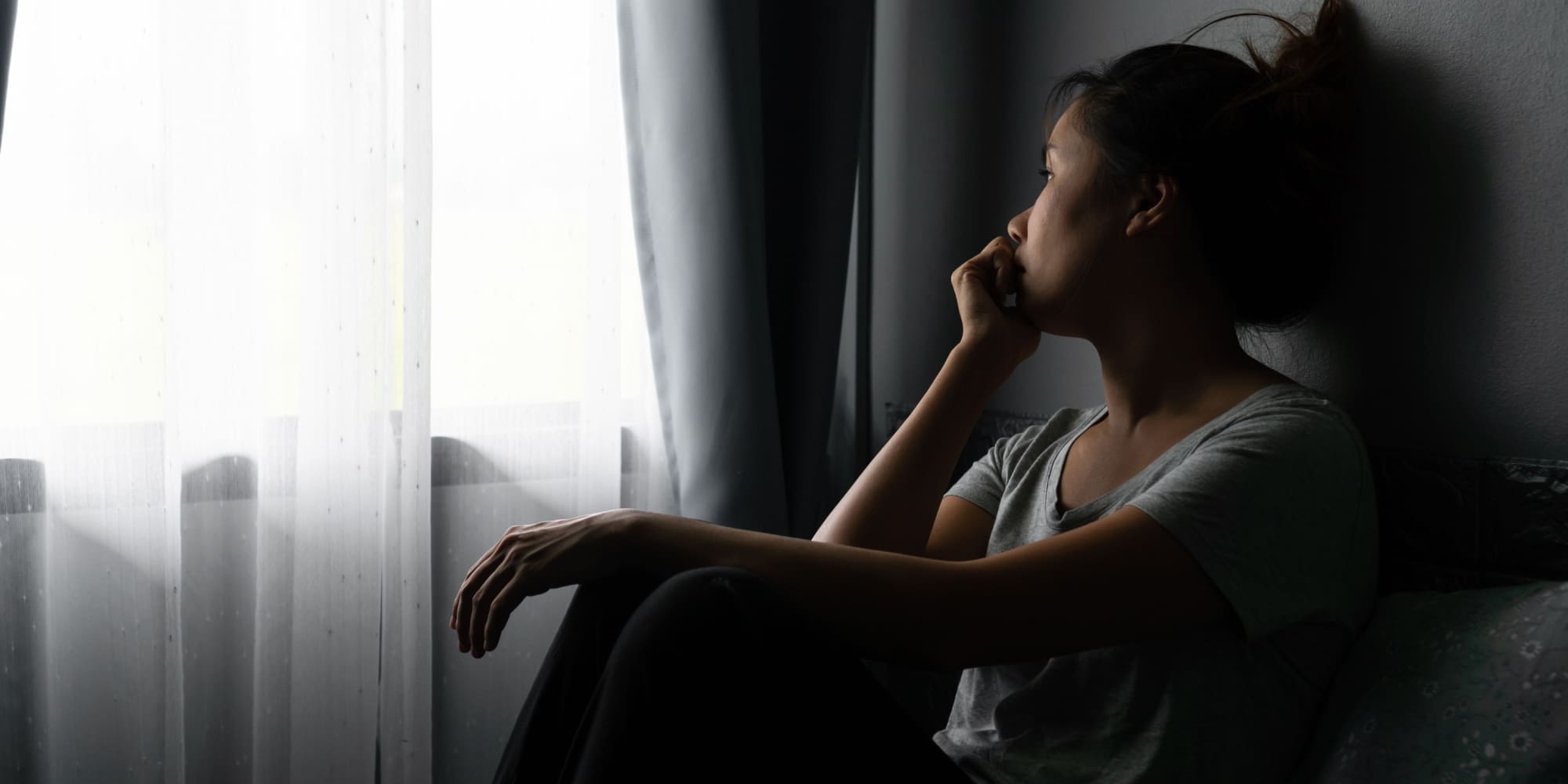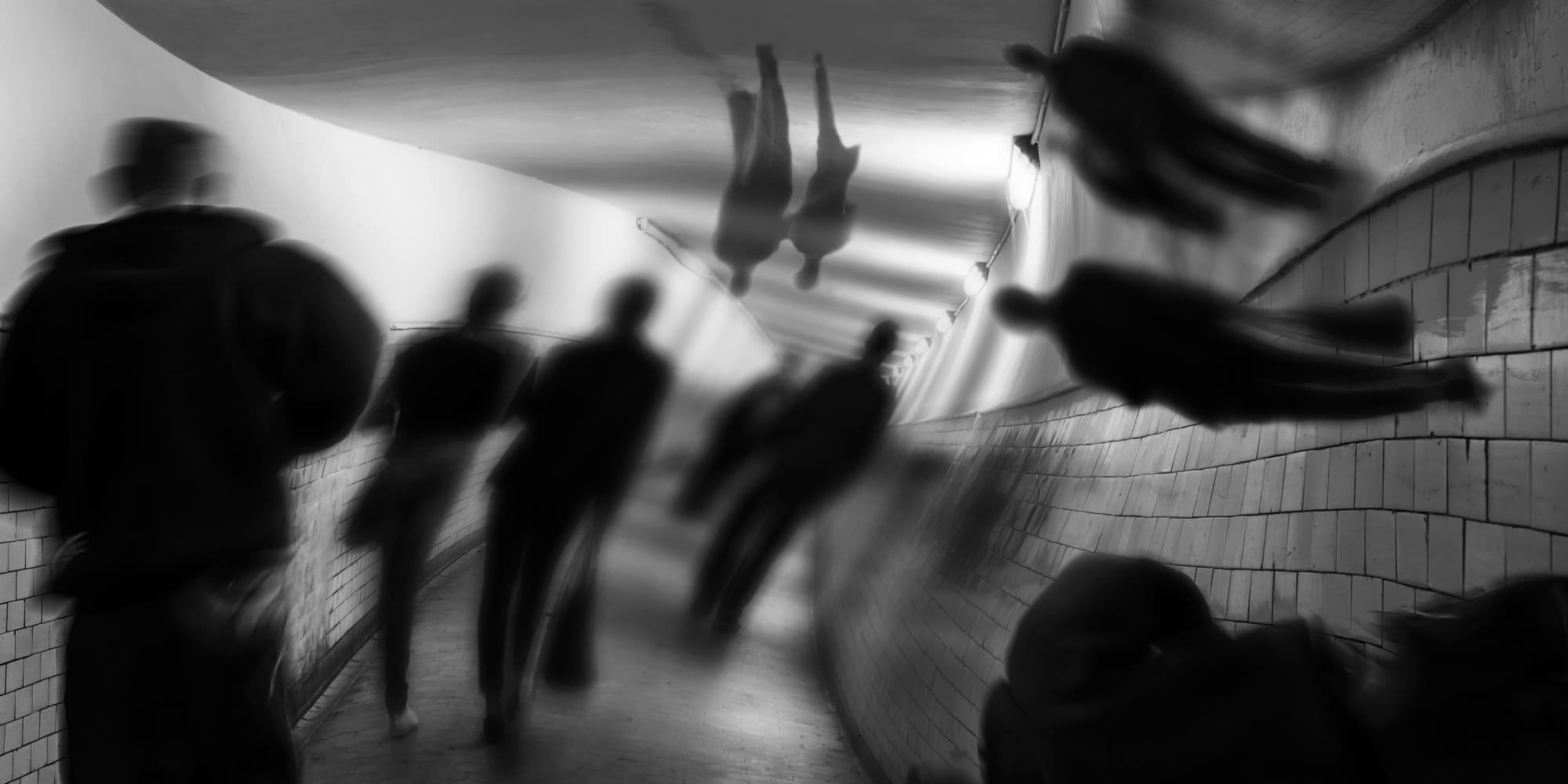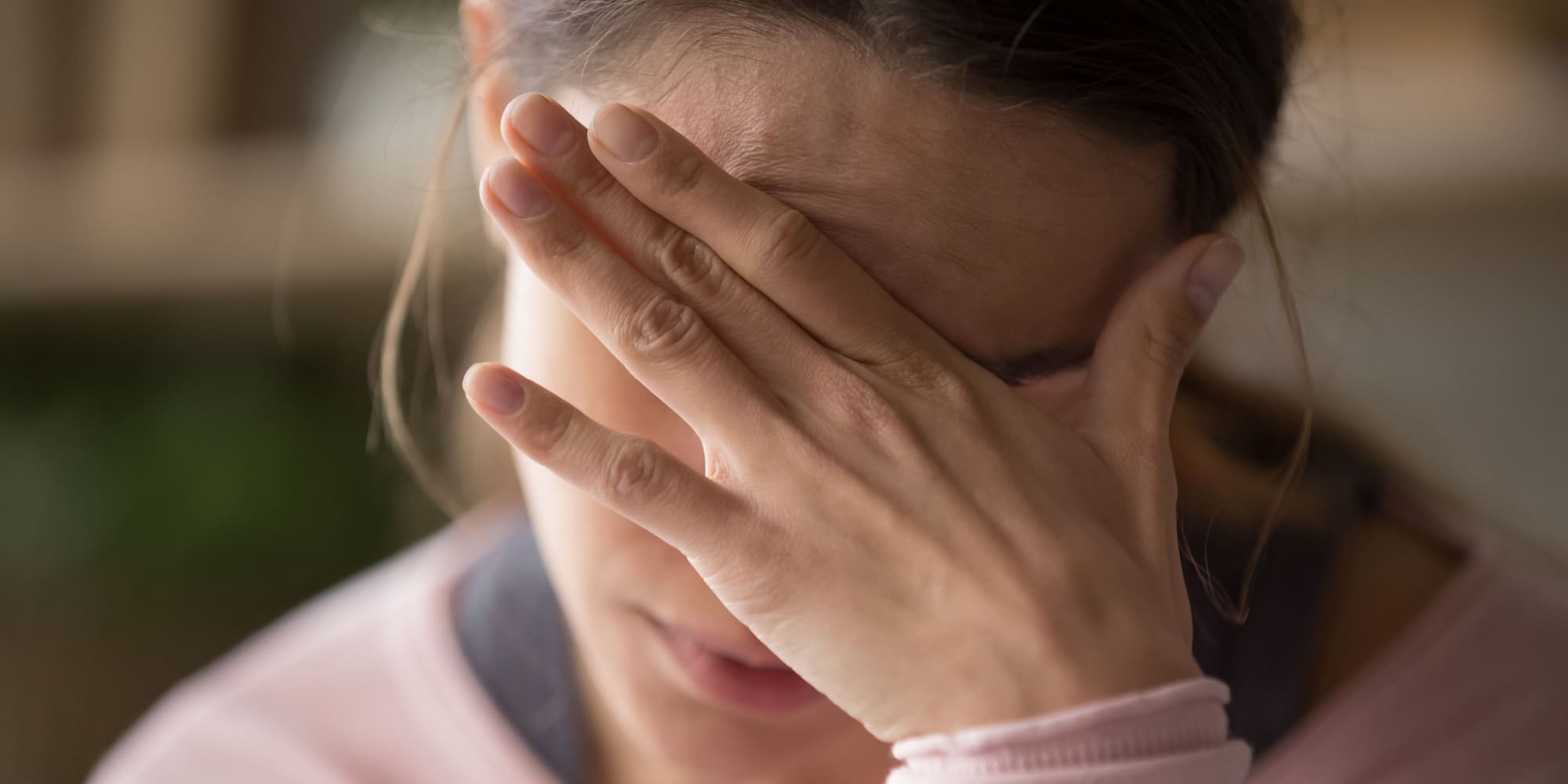If you struggle with agoraphobia, you may fear the inability to escape a public place in an emergency or feel anxious when you’re alone. This fear may cause you to avoid large crowds or leaving your home at all. Avoiding uncomfortable places and situations may provide temporary relief, but it doesn’t make these challenges go away. In fact, the longer you avoid your fear, the worse it will become. But thankfully, seeking agoraphobia treatment can help you regain control so you no longer have to live in fear.
Contents
How Does Agoraphobia Work?

According to the Diagnostic and Statistical Manual of Mental Disorders (DSM), agoraphobia is a type of anxiety disorder. It’s characterized by an intense fear of being trapped somewhere without available help or a means of escape. The fear of actual or anticipated situations can be triggered by traveling on public transportation, standing in a crowded elevator, being in an empty parking garage, and similar situations.
Many people develop agoraphobia after experiencing at least one panic attack in one of these circumstances. Individuals with agoraphobia also fear embarrassment or helplessness if another panic attack occurs. As a result, you may struggle to feel safe in public places where there are a lot of people or go out without a companion. This fear can be overwhelming to the point you no longer leave your home.
If agoraphobia is impacting your quality of life, it’s time to seek help. An effective agoraphobia treatment can help you confront your fears and enjoy your life one step at a time.
Symptoms of Agoraphobia
Symptoms of agoraphobia include the fear of:
- Leaving home
- Crowds or waiting in line
- Small or enclosed spaces such as elevators
- Large open spaces, including parking garages
- Using public transportation
- Spending time alone
If you have agoraphobia, you may also experience:
- Irritability
- Feeling helpless
- Dissociation
- Staying home for long periods
Many people with agoraphobia also have panic disorder. Panic disorder is another type of anxiety disorder characterized by panic attacks and periods of extreme fear that peak within several minutes. Both disorders share similar physical symptoms. As a result, agoraphobia treatment commonly includes treatment for both conditions.
Signs and symptoms of a panic attack include:
- Rapid heart rate
- Trouble breathing or a sensation of choking
- Chest pain or pressure
- Dizziness or lightheadedness
- Shakiness, numbness, or tingling sensations
- Heat flashes or chills
- Upset stomach with nausea or diarrhea
- Feeling out of control
- Intense fear of dying
Agoraphobia treatment can help you work with these symptoms rather than against them. You may be able to manage some of these symptoms on your own. However, a mental health professional can provide the resources and support you need for long-term regulation.
Self-Help Techniques for Agoraphobia Treatment
Coping with anxiety disorders such as agoraphobia can be difficult. Many individuals find it easier to avoid feared situations. Confronting these fears requires a lot of time and exposure to triggering situations. However, working through your fears and learning to manage your symptoms can be accomplished using relaxation techniques. Such techniques include:
- Breathing exercises that help you to slow your breathing when you begin to feel anxious
- Muscle relaxation techniques to help relieve tension from your body
- Practicing mindfulness to feel more in tune with your mind and body to mitigate anxiety
Utilizing healthy coping mechanisms is necessary to manage or decrease agoraphobia symptoms. On the other hand, unhealthy coping mechanisms such as alcohol and drug use can worsen agoraphobia symptoms. They can also lead to additional mental health problems including addiction.
If incorporating self-help techniques into your routine isn’t enough to manage long-term symptoms, it may be time to consider professional agoraphobia treatment.
Agoraphobia Treatment Options


A combination of psychotherapy and medication is the most effective way to treat agoraphobia and other anxiety disorders. However, everyone is different. As a result, it’s important to find an agoraphobia treatment plan that works for your symptoms and mental health goals.
Port St. Lucie Hospital treats a variety of mental health conditions through our adult mental health program. We also provide a variety of therapeutic modalities such as family therapy and supplemental therapy options. Your care team will help you create a foundation for long-term recovery upon your arrival at the treatment center.
In addition to the different types of therapy, we also have support groups. Keep in mind that joining a support group is not an adequate replacement for traditional talk therapy, but it can be a beneficial addition to your inpatient or outpatient agoraphobia treatment plan. Here, you can share with others who have similar experiences.
Together, these treatment options can help you overcome daily challenges caused by agoraphobia.
Agoraphobia Treatment Through Therapy
A mental health professional can talk you through the thoughts and feelings contributing to your disorder. Through different therapy methods, you can discover strategies that help you approach fearful situations at a pace that works for you. Additionally, you can find exercises that help you cope with panic symptoms while utilizing these therapeutic techniques.
Cognitive behavioral therapy (CBT) is the most effective form of psychotherapy used to treat agoraphobia. CBT focuses on altering negative thought patterns and behaviors that are contributing to your anxiety. A mental health professional helps you find healthier alternatives to replace harmful thoughts and behavior. Cognitive behavioral therapy also helps you learn how to challenge and cope with intrusive thoughts and avoidant behaviors.
Exposure therapy is another common therapeutic technique for treating agoraphobia. This agoraphobia treatment method involves gradually exposing yourself to fear-causing situations with the guidance of a mental health professional. Exposure therapy uses systematic desensitization to gradually decrease anxiety and fear associated with triggers.
Each type of therapy provides a unique perspective on recovery. You may benefit from one approach more than the other. But for many individuals, they find that they benefit from a combination of different therapy types.
Agoraphobia Treatment Through Medication
A doctor may prescribe medication to help you manage symptoms of agoraphobia. Selective serotonin reuptake inhibitors (SSRIs) are the most commonly prescribed drug. They help by improving your mood and alleviating feelings of anxiety. However, as with any medication, there can be side effects that do not work for you. Side effects of SSRIs include nausea and dizziness, which can resemble symptoms of a panic attack. In this case, another type of medication may be better suited to your needs.
If you experience severe anxiety, you may be prescribed an anti-anxiety medication such as benzodiazepines for temporary symptom relief. Benzos are considered a habit-forming drug, which makes them unsuitable for long-term symptom management. With that in mind, your care team can help you find a medication that works for you if you choose to pursue an agoraphobia treatment plan that includes medication.
Florida Inpatient Agoraphobia Treatment
Agoraphobia treatment is intended to help you feel better and improve your functioning. To do this, your care team will tailor your treatment program according to your needs and recovery goals. In the safety of our home-like atmosphere, you will see improvement in your daily life.
To learn more about how we can help, call our admissions specialists at (772) 238-7734 or fill out a confidential contact form online. The dedicated staff at Port St. Lucie Hospital will be by your side as you take the next step in overcoming your fears.



























